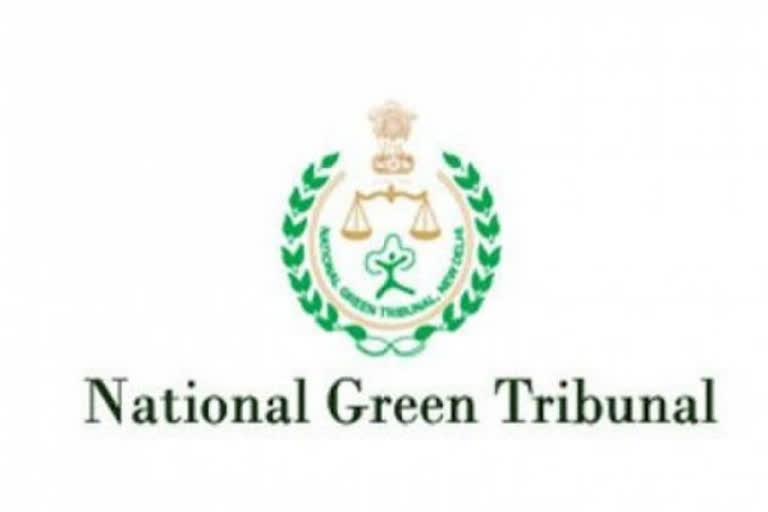New Delhi: The National Green Tribunal has said it has wide jurisdiction including the power to institute proceedings suo motu (on its own) as it cannot keep its hands tied in cases of drastic environmental damage like the gas leak at LG Polymers India plant in Visakhapatnam in which at least 11 people had died and 1,000 impacted.
A bench headed by NGT Chairperson Justice Adarsh Kumar Goel said that NGT has the power to provide relief and compensation to victims of environmental damage, restitution of property, and restoration.
"To effectuate this purpose, NGT has wide powers to devise its own procedure. In appropriate circumstances, this power includes the power to
institute suo-motu proceedings and not keep its hands tied in the face of drastic environmental damage and serious violation of right to life, public health and damage to property," it said.
This is especially so when the victims are marginalized and/or by reason of poverty or disability or socially or economically disadvantaged position cannot approach the tribunal.
The power is coupled with duty to exercise such powers for achieving the enumerated objects. Failure to exercise suo motu jurisdiction in such circumstances would render these victims without remedy, causing irretrievable injustice and breakdown of Rule of Law," the bench said.
Also read: Explosion at chemical factory in Gujarat's Dahej; no casualty reported
It said that if NGT were powerless to institute suo-motu proceedings where so warranted, it would be robbed of all its efficacy, because then the situation would be that if environmental damage causes loss of life, public health and property, the court can grant relief only if the victims found the means to approach it first.
"Such limitation, to a large extent, would emasculate NGT's raison d'etre (the most important reason or purpose for someone or something's existence), and render it nugatory and futile," the bench said.
It said that the National Green Tribunal Act, 2010 suggests that the NGT has been established for enforcement of legal rights relating to environment
and giving relief and compensation for damage to the persons and property in pursuance of the decisions taken at the UN Conference on Human Environment held at Stockholm in June, 1972 and UN Conference on Environment and Development held at Rio de Janeiro in June, 1992 and decisions of the Supreme Court.
It is a matter of record that pursuant to setting up of NGT, even pending matters involving environmental issues have been transferred from Supreme Court and various High Courts to NGT, in view of NGT being the appropriate forum and venue, it said.
The approach of a Court in dealing with the environmental issues cannot be hyper technical, for that would defeat the ends of justice, especially in matters where Right to Life is implicated, the tribunal said.
"Once patent violations affecting Right to Life are in public domain, the court cannot be debarred from remedying the same on the sole ground that the affected party has it moved the court. The court can divide its own procedure to investigate and give relief to the
victims in appropriate cases," it said.
The bench, also comprising Justice Sheo Kumar Singh, said if NGT is prevented from instituting suo-motu proceedings, these issues and violations would remain unaddressed, citizens' inalienable right to life and other rights will stand jeopardized, and the serious and irreversible environment damage would continue unchecked.
Also read: SC orders Andhra Pradesh to remove political colours from govt buildings
"No-one may raise such issues, much less the affected individuals suffering silently specially in remote areas. If even a third person claiming to be 'public spirited' can be given locus, why publicly known serious violations of environment affecting the Rule of law, human and existential rights must be objected to be protected by this Tribunal on such specious plea in the face of a clear constitutional, statutory, and international law mandate," the NGT said.
The tribunal said that it is not debarred from dealing with substantial issues of environment as it has been exclusively constituted.
"Any other view may seriously hamper environmental justice and scheme of parliamentary law and judgements of the Supreme Court.
Issue of procedure is in discretion of this Tribunal, including initiation of suo-motu proceedings, unless expressly barred," the bench said.
The observations came while deciding a plea filed by the South Korean company LG Polymers India saying that NGT could not have taken suo motu cognizance of the matter as it does not have jurisdiction.
PTI



